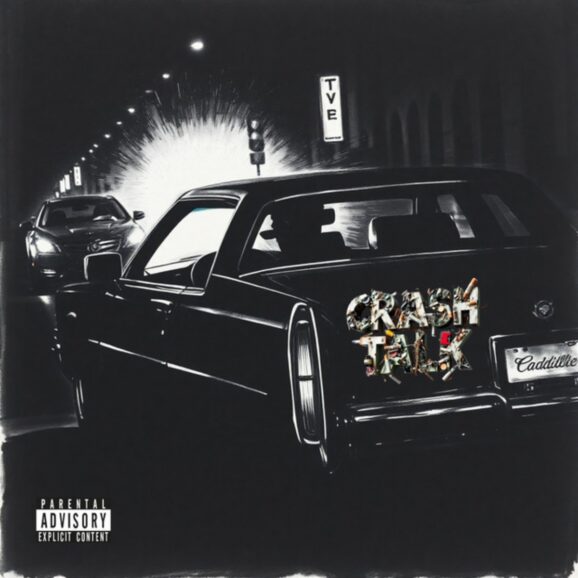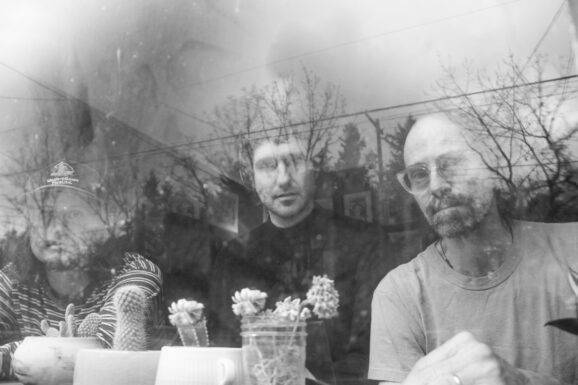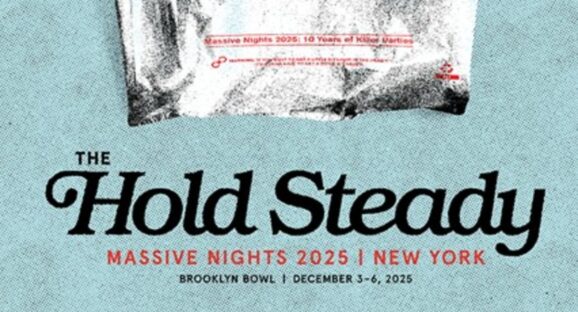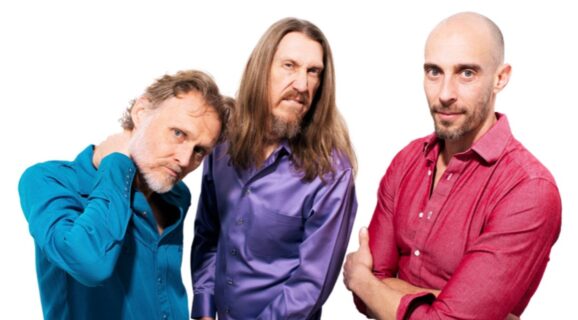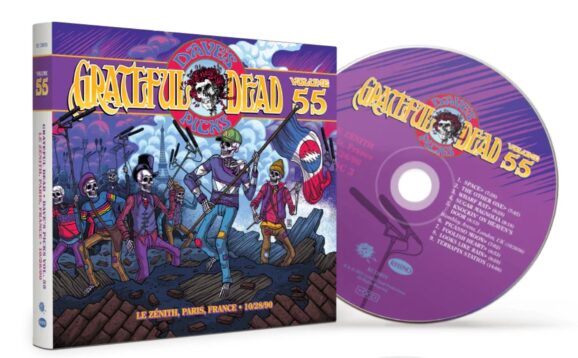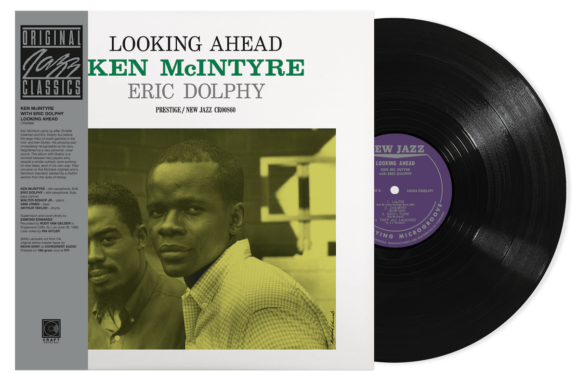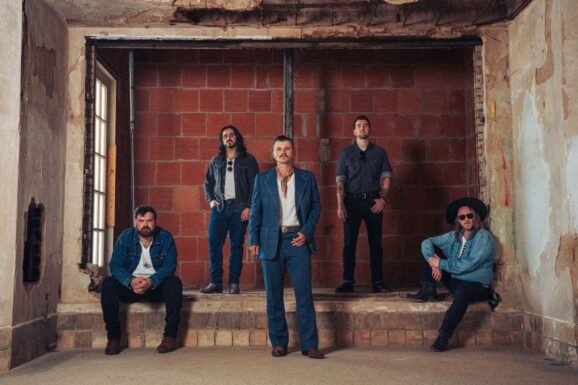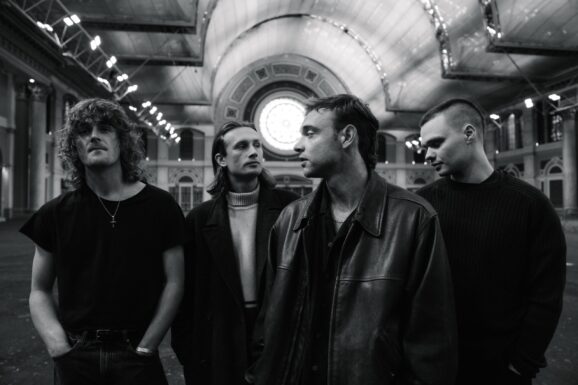Colorado-based Alt-Country and Rock band The Gasoline Lollipops released their new album, Kill The Architect, on June 13th. It was produced by Steve Berlin of Los Lobos, recorded at Dockside Studios in Louisiana, and made possible by a massively successful Kickstarter campaign. If all these things sound very positive, you’re right, and add to that the fact that Gasoline Lollipops currently have the most varied line-up they’ve ever had, which gave the album an extra sound-boost and an unmistakable energy.
Gasoline Lollipops albums usually have very thoughtful lyrics, reflecting on the world around them, and that’s certainly true of Kill The Architect. This time, songwriter Clay Rose drew on his compositions created for a ballet focusing on updated versions of the characters Samson and Delilah, one which took a look at modern gender imbalances, and the wider tensions and oppositions in the world around us. With a selection of those songs in hand, the Gaspops took the energy of their live shows into the studio to bring the drama and struggle of a world in disarray to life in new ways. I spoke with Clay Rose about the writing and recording of Kill The Architect, and the wider storytelling he drew on through making some very emotional connections to his own life experiences.
I’m familiar with your previous album and I hear a bigger sound here with Kill the Architect, and a lot of interesting developments.
Yes, I think there are some definitely some through-lines, but also some obvious steps from All The Misery to this one, and I feel that our palette has expanded, and the amount of different sounds that we’re making has expanded. I think that’s mainly due to having a band of members who are capable of doing that, and the other part of it is that I listen to so many different types of music, and so many genres that inspire me, that I just want to know what it feels like to play each one of them.
Do you consciously hear things and think, “Oh, I want to do that!”? Or is it a more general thing of being in a certain world of sound and gravitating that way?
There are definitely songs that will inspire me. My mom was just visiting, and she had never heard Jason Isbell before, so I just played her the song, “Cover Me Up.” That was a song that, the first time I heard it, lyrics just started coming into my head. It was a really inspiring melody, cadence, and rhyme scheme. Then, I was out for a walk, and I got home, and wanted to put my lyrics over those chords. My greatest gift as a songwriter is that I don’t know any music theory, and I have a terrible ear, so I go home and do my very best impression of a song, and it sounds nothing like that song. That song, for me, ended up being “Put Me To Task” that was on Soul Mine, and when you listen to it, there’s really no resemblance at all. I’ll hear a song that inspires me, and I’ll think, “That’s cool! I want to write that!” I do my best impersonation of that, and it’ll have flavors of it.
A truism about creative work is that you do things the only way that you can, and people think it’s called your “style.”
[Laughs] Exactly!
Of course, when you get a group of musicians who could all play in multiple styles, like you have, what ends up determining their “sound” is when you put them together.
Exactly, and you let them all express themselves. I’ve never told anyone what to play, ever. The night before last, I had band practice because we have some gigs coming up with a substitute drummer. She was trying to play the drum parts exactly as they were on the record, and she was doing it, but I could tell that it wasn’t her natural style. So I asked her to play what she would if she’d never heard a recording of the song.
What she played was totally different, but it sounded so much more natural. It was her style. I asked her to play whatever she felt like, since it would come across better. I really do think that’s the uniqueness of the band, everybody’s voice singing in harmony together. When they express that, the song becomes completely different. I don’t want to replicate.
I know that live performance has been a big part of shaping you, as a person, and looking at the band members, that’s true of them, too. Does that come first for you?
I do my very best to imitate a live performance in the studio, but you can’t, because the very best live performance is a room full of people making that happen. I really think the audience is as big a part of the experience as the band, and there’s a magic when that happens. It’s the closest thing to church or a religion that I’ve had. It’s the most spiritual experience that I’ve had, playing music when I can see that everybody in the room needs it. That it’s not just entertainment, that everyone’s there to exorcise their demons together, and you can feel the vibe getting lighter and lighter, and cleaner and cleaner. We all become lighter, and by the end, we’re all riding on this communal high together. That’s the juice. That’s why I play music. I would never just be a recording artist.
I kind of liken recording a record to doing a jigsaw puzzle, and there’s a way to fit all these pieces together to make an image or a sound, but it’s a more cerebral activity. Obviously, when it comes time to do the vocals, if it’s an emotional song, it becomes an emotional experience, but 90% of what goes on in the studio, for me, is puzzle pieces coming together. On this last one, it was the first time that we’d ever had a Producer. We had Steve Berlin from Los Lobos produce the record, and that was a huge weight off, because I will become obsessive with jigsaw puzzles, even though it’s not something I really enjoy. I can force pieces to fit when they shouldn’t, so I just handed that whole job over to Steve Berlin and let him decide where the pieces fit. He heard all the pieces, and it came out great! He really streamlined the whole process, and it made it way more fun for the rest of us.
That’s a lot of heavy lifting, that’s great. Was he involved in the recording when you went to Dockside?
Yes, he was there the whole time. And we also went out to Portland before the recording, which is where he lives, and we rented a studio out there for a few days, for him to just listen to all the songs that I’d written. He chose the songs out of all the songs that I’d written, for the album, and he helped us arrange them a bit. Then we had a month to practice his new arrangements on tour before we got to the studio. It was a lot of work, but it was very efficient. All the time we put into it was time that we needed to use. It was also amazing that we funded the whole thing off of a Kickstarter. I had only done one Kickstarter before, for Soul Mine, and I raised $10,000 and I thought it was amazing. But for this one, we raised $50,000! It was really cool.
How did the songs get written for this album? Are you just writing all the time, and Steve picked from a bunch of those, or was it a specific effort to write for this album?
I think one of the reasons that there’s cohesion between these songs is that all of these songs were written for a ballet, this ballet company in Denver called Wonderbound. I just finished another ballet for him, and I’ve written four for them now. All the songs on Kill the Architect were from a ballet called Sam & Delilah, all based on the story of Samson and Delilah, but it took place in East Texas in the 1970s. Delilah was a hairdresser; she ran a salon, and Sam was the crooked sheriff of the town, sort of a John Wayne type. We were tackling the topic of the imbalance between the feminine and masculine energy in today’s society, especially with our new dictator-in-chief. We were looking at things through that lens. There was also the hungry nature of love, and how it can become a possessive thing, thinking, “I love this, so I want to own this. I love this, so I want to control this. I love this, so I want to make sure that this never goes away.”
That was a bit more obvious in my grandparents’ generation, but today I think it’s become more subtle and ambiguous, the ways in which the masculine dominates the feminine in our society. But the writing’s on the wall. You look around, and it’s really imbalanced still. Who’s making all the decisions? It’s still old, straight, white, Christian men. Those were the issues that we were tackling in the ballet, and I think that’s part of what gives the record cohesion.
Like the song “Holy Rebel”, for instance, that was written from the perspective of Samson after he’s lost one eye and he’s been reduced to pretty much nothing but primal rage. All morality has gone out the window at that point, and it’s blood lust. He’s on the path of revenge and destruction. In the song, he forsakes the Devil, he forsakes his own reflection, which is the way that society sees him, and he rejects his own creator, God, at the end. He just tears it all down.
With “Holy Rebel”, I did feel the rage was there, and the kind of idea that there’s nothing that can be done except to level what exists. There’s no more repair to be done, nothing more to work out, and that’s a scary thing to think about, because in the real world, that results in tremendous suffering.
Yes. It’s nihilism. I’m sure you’ve heard the phrase, “This person took the red pill, this person took the blue pill.” Now there’s this phrase, “This person took the black pill.” The black pill is exactly that, it’s nihilism and it’s extremists. It’s the kind of guys who walk into gay bars in Miami and open fire, or walk into movie theaters in Aurora and open fire. They start out taking the red pill, which is this propaganda that they are being marginalized, and cheated, and their rights are being given away to women or to Black people, or whatever, as if there are only enough rights for one group of people. Like liberty as a limit or something. Then they get to the point where they think it’s an irreversible movement, and they just become suicide bombers, eventually.
It’s like a vehicle moving ahead from which they can no longer extricate themselves.
That’s a very scary place to me.
How did you come up with such a heavy sound for that song? That must have been a creative challenge. Obviously, as a human being, you don’t feel the same way as this guy does, but you had to put yourself in that headspace and channel this.
Right. Well, I have felt this way, but not on a political level. Through drug and alcohol addiction, I have gotten there, to the point where I feel so thoroughly and permanently enslaved by this addiction, and I’m watching it corrode my relationships, lose me jobs, lose me houses, and lose me everything, one piece at a time. It’s so much worse than just a bullet to the head, because before you die, you’re going to lose your reputation, you’re dignity, everything. You’re going to be stripped down to the bone, you’re going to barely have a soul left. I remember getting pretty nihilistic and full of rage about that, and wanting to just kill myself, rather than go out like that, just one piece of a time.
I would rage, and I’d smash stuff, and I’d get in fights, and I’d go to jail. So I could relate to Samson in that moment, it’s just that the object of my rage was different. But I think even if you’re writing a fictional, third-person song, if you don’t relate on some level, I don’t think it’s worth writing. It’s going to come across as two-dimensional. It might still be worth listening to for some people, but I listen to three-dimensional music.
Doesn’t it have to be interesting to you to make you pursue it, anyway? There can be great ideas for songs, but that’s all they are—great ideas that might leave an audience cold. To actually pursue a song takes a specific motivation and connection.
Yes, I have to relate to it. I have to have some common experience with the character I’m writing about. A lot of times, you’re writing about things that are too personal and scary, if you were writing it autobiographically, but you can write it if it’s a fictional character.

